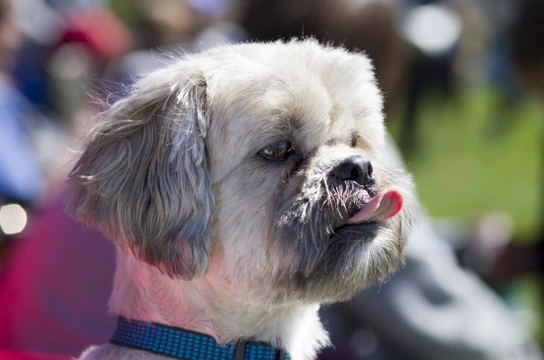
Why Does My Dog Lick Fabric? Understanding the Behavior
Dogs are very orally-oriented animals, and love to chew, lick and hold things in their mouths. Licking is of course, something that dogs do very frequently; they lick themselves, their toys and bones, their owners, and many other things too, and this is perfectly normal in most cases. However, some dogs have a heightened propensity to lick everything, and some dogs particularly seem to spend a lot of time licking soft furnishings, such as their bedding, the sofa, and sometimes, even the carpets of the home. If your dog licks soft furnishings almost constantly, or licks things to the point that they are noticeably wet, this is not necessarily normal, and may indicate a potential behavioural issue or even an underlying medical cause. Read on to learn more about excessive licking, plus some of the reasons behind it.
Soothing
When dogs are injured or feel under the weather, they will often lick themselves excessively, either to soothe a wound or to make themselves feel better emotionally. This can sometimes transfer to licking other things around them too, particularly their bedding or whatever they happen to be sitting on at the time. While your dog may be licking as part of the soothing process if they are hurt or ill, they are equally likely to lick to soothe themselves emotionally too; such as if they have had a fright, are feeling insecure, or are generally stressed.
Try to identify the times when your dog is prone to licking things, and see if you can work out if something has happened to cause a change in mood, or if it is part of your dog’s ritual to settle themselves down.
Boredom
Dogs will do the oddest things when they are bored, and will look for literally anything to entertain themselves with! This may ultimately manifest as being destructive within the home and chewing or ripping up the furniture, but it is equally likely to manifest as licking. As licking is less destructive than many of the other things that dogs can get up to, it is easy to overlook this and simply write it off as one of your dog’s stranger personality traits! However, excessive licking due to boredom does need to be addressed, both because it may ultimately lead on to more destructive behaviours, and because it is unfair to allow your dog to remain bored to the point that they begin to act out in any way.
OCD
OCD or obsessive-compulsive disorder is a condition that we usually associate with people, but animals are equally capable of displaying OCD traits as well. OCD involves repeating the same process over and over and over for no good reason, and is indicative of a behavioural or emotional issue with your dog. While OCD can be triggered by a range of factors including stress or boredom, it is not always so simple to identify the root cause! You may need to enlist the help of a canine behaviourist to help you to identify genuine OCD behaviours, get to the root of the issue and help you to train and condition your dog out of doing it.
Separation anxiety
Being separated from the dam too early when a puppy can trigger later separation anxiety, which leads to the mimicking of puppy-like behaviours such as compulsive licking. This is due to a combination of self-soothing and not having had the opportunity to learn and develop the normal canine behaviours at a young age from the dam and littermates. Puppies should never be removed from the dam until they are at least eight weeks old, and preferably twelve weeks old, unless there is a good reason such as the dam rejecting the puppy or being unable to feed their young.
If you do find yourself with a puppy that needs to be hand-reared, it is important to mimic natural behaviours as much as possible, to avoid later problems in the adult dog manifesting juvenile behaviours and not going through the normal process of learning, separation and development.
Nutritional deficiencies
Very rarely, a dog that has a nutritional deficiency will seek to replace the nutrients that they are lacking by looking in the most peculiar of places! This may manifest in their eating strange things when out walking, or trying to eat things that are not actually food! Excessive licking of certain things can be one end result of a nutritional deficiency or imbalance, and if the licking develops without explanation in the adult dog, this should be your first consideration.
Ensure that you feed your dog a nutritionally complete diet that is appropriate for their age and life stage, and that they are not lacking any trace elements or minerals. If in doubt, talk to your vet about testing for a nutritional imbalance, and supplements that you can feed to your dog to ensure that they are getting everything that they need.



